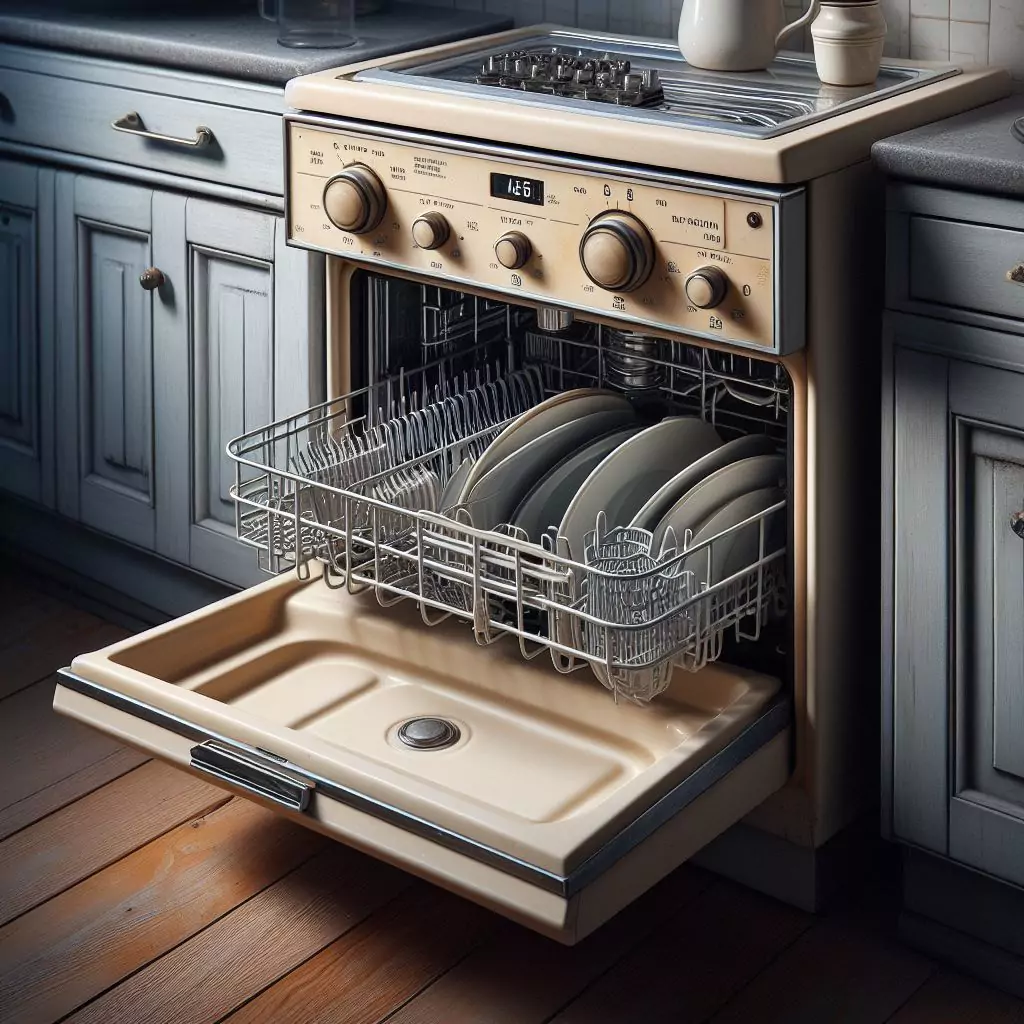How Much Water Does a Dishwasher Use?


When it comes to maintaining the cleanliness of our kitchens and ensuring sparkling dishware, dishwashers have become an indispensable time-saving tool.
But have you ever wondered about the environmental impact of this modern convenience? One significant concern is water usage.
In this article, we delve into the depths of this topic, exploring just how much water a dishwasher consumes.
Get ready to gain insights into the efficiency of these appliances and discover ways to minimize your water consumption while still enjoying the convenience of a dishwasher.
Let’s dive in.
How Much Water Does a Dishwasher Use?
The average water consumption of dishwashers can vary depending on several factors, including the make and model of the dishwasher, its age, and the settings used during each cycle. However, We can provide you with a general idea of typical water usage for dishwashers.
Older Dishwashers

Older dishwashers tend to be less water-efficient and can use anywhere from 7 to 14 gallons (26 to 53 liters) of water per cycle. These models often lack the advanced technology found in newer, more energy-efficient models.
Energy-Efficient Dishwashers

Modern, energy-efficient dishwashers are designed to use less water. Many of these models use around 4 to 6 gallons (15 to 23 liters) of water per cycle. Some high-efficiency models can go even lower, using as little as 2 to 3 gallons (7.5 to 11.4 liters) per cycle.
Compact Dishwashers

Compact dishwashers, which are smaller in size and designed for apartments or smaller kitchens, typically use less water than full-sized models. They may use around 3 to 5 gallons (11.4 to 19 liters) of water per cycle.
Note: Keep in mind that water consumption can vary widely among different dishwasher brands and models, so it’s a good idea to check the manufacturer’s specifications for the specific dishwasher you are interested in.
Factors Affecting Water Consumption in a Dishwasher
Several factors can affect the water consumption of a dishwasher. By comprehending these factors, you can make well-informed decisions and effectively optimize water usage. Here are some essential factors to consider:
Energy Star Ratings
Dishwashers with an Energy Star label are designed to meet strict efficiency guidelines, including water usage. Higher-rated models use less water per cycle than non-certified models, resulting in significant water savings over time.
Dishwasher Age and Efficiency
Older dishwasher models may be less water-efficient compared to newer ones. Upgrading to a more modern and energy-efficient dishwasher can reduce water consumption.
Load Size
The amount of dishes you load into the dishwasher affects water consumption. Running full loads maximizes water efficiency. Overloading or underloading the dishwasher can lead to unnecessary water wastage.
Cycle Selection
Different cycles have varying water requirements. Heavy-duty or pots and pans cycles may use more water to tackle tougher stains, while eco-friendly or light cycles use less water by operating for shorter durations.
Pre-Rinsing
Pre-rinsing dishes before loading them into the dishwasher can significantly increase water usage. Most modern dishwashers are designed to handle food particles and minor residue, eliminating the need for extensive pre-rinsing. By scraping off excess food instead, you can reduce water consumption.
Tips for Reducing Water Usage
Reducing water usage in your dishwasher helps conserve this valuable resource and contributes to lower utility bills. Here are some practical tips to minimize water consumption:
1. Select an Energy-Efficient Dishwasher
Look for dishwashers with an Energy Star rating, as they are designed to meet strict efficiency guidelines, including water usage. These models use less water per cycle than non-certified ones, resulting in significant water savings over time.
2. Use Eco-Friendly Dishwasher Detergent
Choose environmentally friendly dishwasher detergents that are formulated to be effective even with lower water temperatures and shorter cycles. This reduces the amount of water needed for rinsing without compromising the cleanliness of your dishes.
3. Load Efficiently
Optimize your dishwasher’s capacity by loading it properly. Ensure dishes are arranged strategically, allowing for effective water flow and coverage. Avoid overcrowding, as it can lead to inefficient cleaning and the need for additional cycles.
4. Skip Unnecessary Pre-Rinsing
Most modern dishwashers are designed to handle food particles and minor residue. Rather than pre-rinsing dishes under running water, remove excess food by scraping it off before loading the dishes into the dishwasher. This can save a significant amount of water per cycle.
5. Use the Right Cycle
Choose the appropriate cycle based on the level of cleaning required. For lightly soiled dishes, opt for shorter or eco-friendly cycles that use less water—reserve heavy-duty or pots and pans cycles for heavily soiled items only.
6. Repair Leaks Promptly
If you notice any leaks or dripping faucets in your dishwasher, have them repaired as soon as possible. Even small leaks can waste a substantial amount of water over time.
7. Consider Handwashing Some Items
While dishwashers are generally more water-efficient, for certain items that require minimal cleaning or delicate materials, consider handwashing instead. This can save water when dealing with a small number of dishes.
FAQs
Can I reduce water consumption by using shorter cycles?
Yes, opting for shorter or more eco-friendly cycles can help reduce water consumption. These cycles are designed to use less water while effectively cleaning lightly soiled dishes.
Does the load size affect water usage in a dishwasher?
Yes, the amount of dishes loaded into the dishwasher can impact water consumption. Running a full load maximizes water efficiency, as water usage remains relatively constant regardless of the load size. Overloading or underloading the dishwasher may result in less efficient water usage.
Is pre-rinsing dishes necessary, or does it waste water?
Pre-rinsing dishes is often unnecessary and can lead to water wastage. Most modern dishwashers are designed to handle food particles and minor residue. Instead of pre-rinsing under running water, scrape off excess food before loading the dishes into the dishwasher.
Do newer dishwasher models use less water than older ones?
Yes, newer dishwasher models, especially those with energy-efficient features, tend to use less water compared to older models. Upgrading to a more modern dishwasher can save significant water over time.
Wrap Up
Understanding the water consumption of dishwashers is crucial for making environmentally conscious choices in our daily lives.
By following these simple tips, you can enjoy the convenience of dishwashers while actively contributing to water conservation efforts and building a sustainable future.






